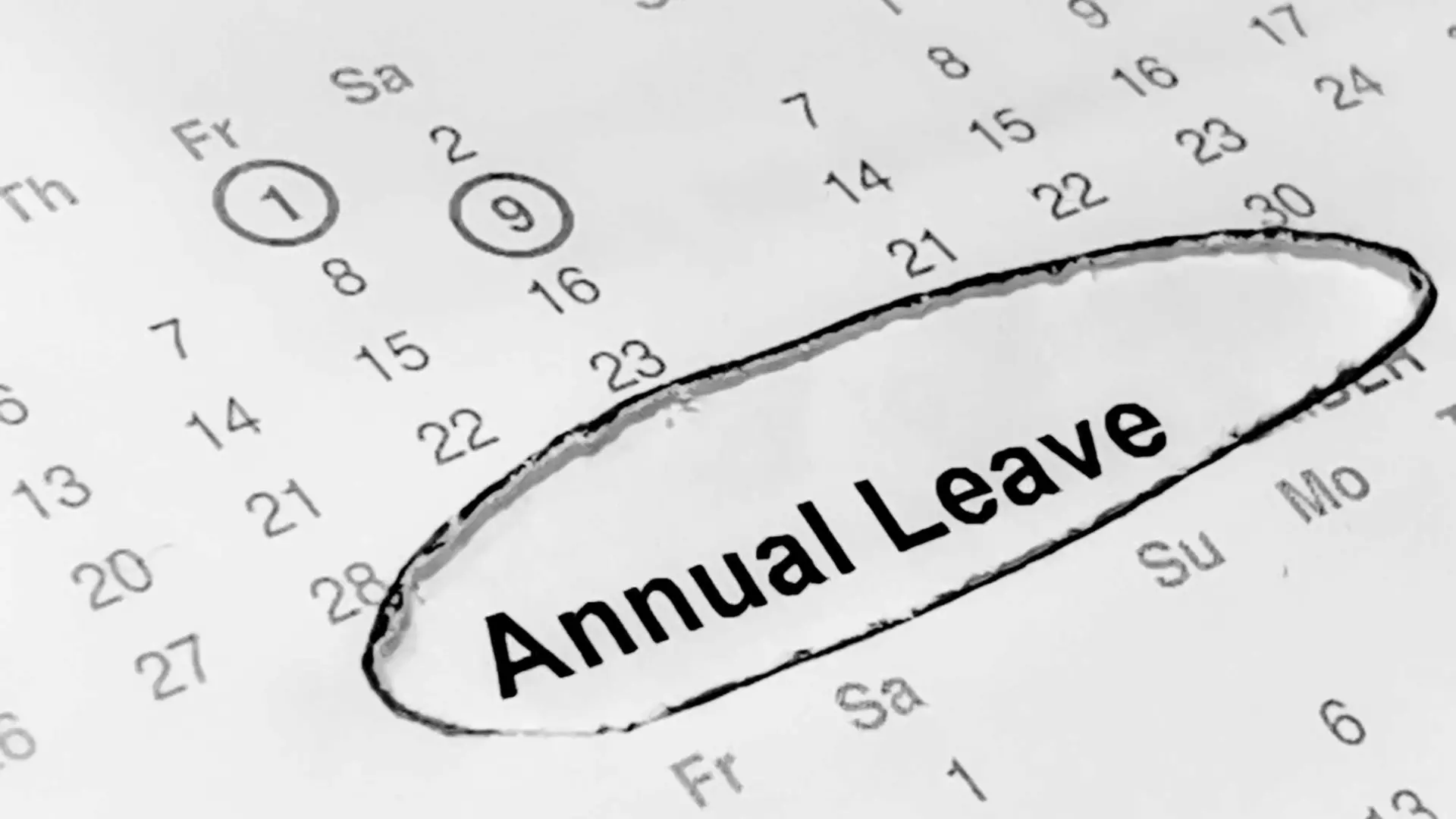Article
Understanding Leave Entitlements for Nannies and Au Pairs in New Zealand

Leave Entitlements for Nannies and Au Pairs
When you employ a nanny or an au pair in New Zealand, you're not just hiring someone to care for your children, you're entering into a formal employment relationship. This brings with it specific responsibilities and legal obligations. One of the biggest complexities, and constant questions we’re asked, is around the legal entitlements for a nanny when it comes to leave.
To make sure your nanny is paid fairly, and compliantly, it’s important for employers to fully understand these entitlements. This not only helps in complying with your obligations as an employer but also aids in building a strong working relationship with an employee who will play such a vital role in your family’s life.
In this article, we will break down everything you need to know about the leave entitlements for nannies and au pairs, from annual leave to sick and parental leave, ensuring that you are well-equipped to manage these important aspects of employing a nanny.
What are the different types of leave that a nanny is entitled to?
The key legislation that are important to understanding leave for a nanny or au pair is the Holidays Act 2003 and the Employment Relations Act 2000. The Employment NZ website is also a really great resource as it breaks things down in a way which is easier to understand.
Outlined below are the key types of leave which a nanny or au pair is entitled to:
Annual Leave:
- Employees, including nannies and au pairs, are entitled to four weeks of paid annual leave per year. Technically, this leave is “due” after 12 months of continuous employment, but a nanny will accrue a leave balance from their first day of employment and should be able to take leave in advance prior to 12 months of employment.
Sick Leave:
- After six months of continuous employment, and assuming they have worked for you for an average of at least 10 hours a week and no less than one hour a week or 40 hours a month, nannies and au pairs are entitled to sick leave. They will accrue 10 days of sick leave per year, which can be used when they are sick or injured, or to care for a sick or injured spouse, partner, dependent child, or dependent individual.
- One thing that often catches out families is that an employee is entitled to 10 days, regardless of whether they are part-time or not as sick leave isn’t pro-rata’d. There are some potential changes coming to this and work is underway with central government.
Bereavement Leave:
- Nannies and au pairs are entitled to three days Bereavement Leave per annum after they have been employed continuously for six months. Bereavement leave allows employees to deal with the death of a close family member. Nannies and au pairs are entitled to bereavement leave as it provides time to grieve, attend funerals, and manage any associated matters.
Public Holidays:
- If a public holiday falls on a day your nanny or au pair would normally work, they are entitled to a paid day off. The amount of hours they should be paid should be the amount they would have normally worked if it wasn’t a public holiday.
- If they agree to work on a public holiday, they need paid at least time and a half, and if it's a usual working day for them, they also get an alternative holiday (day in lieu).
Parental Leave:
- Parental leave entitlements apply to employees who are expecting a child or adopting a child under six years old. This includes up to 26 weeks of government-funded parental leave payments if they have worked for at least an average of 10 hours a week in the 26 weeks immediately before the baby’s expected due date or the date they assume care of the child they are adopting.
- It’s important to note that Parental Leave is paid via the Government, so not something a family would have to continue paying, when their nanny is on parental leave.
Domestic Violence Leave:
- Eligible employees are entitled to up to 10 days of paid leave each year if they, or a child who lives with them, experience family violence.
With Pay The Nanny, the majority of our questions centre around leave. If you’re not sure on whether your nanny or au pair is entitled to leave, how much they are entitled to or just a question on leave in general then reach out to us and we’ll be happy to help out.
Understanding Holiday Pay As You Go for Nannies
In New Zealand, the Holiday Pay As You Go system is an option for managing leave entitlements for employees with irregular work patterns, like some nannies. Under this arrangement, instead of accruing annual leave, an additional 8% of the nanny's gross earnings is added to their regular pay as holiday pay.
It’s important to note that it’s not always a choice for Employer around whether to include Holiday Pay as You Go instead of accruing.
The two scenarios where it can be applied:
- The employee is on a genuine fixed-term agreement of less than 12 months. Or,
- The employee works so irregularly that it’s impractical to provide them with four week’s annual leave.
This method is intended to simplify the process of managing leave for both the employer and the nanny. It's crucial for employers to document this arrangement in the employment contract and ensure that the nanny understands that this pay includes their entitlement to annual leave. This helps prevent any misunderstandings about rights when a nanny or au pair comes to request time off.
Entitlements for Au Pairs: Annual and Sick Leave
Au Pairs are a growing type of nanny in New Zealand and more New Zealand households are employing them to help with their childcare and, sometimes, light housework.
For the majority of Au Pairs, they are usually young and new to the country. Therefore, they likely don’t have much working knowledge of payroll in New Zealand. Therefore, it's important for these families to understand that au pairs, like any other employees in New Zealand, are entitled to both annual and sick leave under the Employment Relations Act and the Holidays Act.
We recently wrote a detailed article around a guide for managing payroll for Au Pairs, so if you are interested, make sure that you check it out.
Breaking down common questions and scenarios for those employing nannies
At Pay The Nanny, we’ve processed payroll for thousands of families meaning that we understand the common questions that both Employers and Nannies take. In this section, we’ve compiled a list of frequent questions along with some answers and guidelines to follow.
1. How do I calculate annual leave for a part-time nanny?
- Scenario: Your nanny works 20 hours per week.
- Answer: Annual leave for part-time employees, including nannies, is calculated in the same way as for full-time employees, on a pro-rata basis. Your nanny would be entitled to four weeks of annual leave, but as they work part-time, this translates to 80 hours of leave (20 hours/week × 4 weeks).
2. What happens if my nanny falls sick?
- Scenario: Your nanny calls in sick and has sick leave entitlements available.
- Answer: If your nanny has accrued sick leave, they are entitled to use this leave for the days they are sick or looking after people in their care. They need to follow any agreed-upon notification procedures, like calling or notifying you as soon as possible on the day they are sick.
3. Can my nanny accrue leave while on parental leave?
- Scenario: Your nanny is going on parental leave.
- Answer: This one is always a tricky one as the answer is both Yes, and No. Your nanny does accrue leave whilst they are on parental leave. However, the leave accrues at a value of effectively $0.
4. How do I handle public holidays for a live-in nanny?
- Scenario: A public holiday falls on a day your live-in nanny would normally work.
- Answer: If your nanny is not required to work on the public holiday, they should be paid their relevant daily pay for that day. If they work, they must be paid at least time and a half for the hours worked, and they also receive an alternative holiday (day in lieu) if it’s an otherwise working day for them.
5. What if my nanny wants to take leave earlier than planned?
- Scenario: Your nanny requests to take their annual leave before accruing a full year of service.
- Answer: You can agree to let your nanny take leave in advance, which means they would use their leave entitlement before it’s fully accrued. This is common practice and we consider it fair for those employing nannies and au pair’s to allow.
6. How do we handle leave during the termination of employment?
- Scenario: Your nanny is leaving the job, and there are accrued leave days.
- Answer: Upon termination, any accrued but unused leave should be paid out in their final payslip. This ensures that the nanny is compensated for the leave they earned but did not take.
7. What happens if we are away and don't require our nanny to work?
- Scenario: You have planned a family holiday and won't be home, meaning your nanny's services aren’t required during this period.
- Answer: If you decide not to require your nanny’s services while you are away, you generally have two options:
- Option 1: Treat these days as normal working days and pay your nanny as usual. This is often the simplest solution and maintains goodwill.
- Option 2: With sufficient notice, you could arrange for these days to be taken as part of the nanny’s annual leave, but this should be mutually agreed upon. If the nanny prefers not to use their annual leave, you are still obligated to pay them for these days, as they are available to work (but you’re asking them not to come.
- One other thing to consider on this question is that an employer is allow to have an annual closedown each year. During this time, an Employer is able to ask a Nanny or Au Pair to take leave as long as it’s reasonable and enough notice is given. This is usually, but doesn’t have to be, over the Christmas period.
8. My nanny wants to take leave but hasn't accrued enough leave yet
- Scenario: Your nanny requests to take more leave than they have accrued.
- Answer: When a nanny wants to take more leave than they have accrued, you have a couple of options:
- Option 1: Agree to advance leave and let them go in to a negative leave balance. This means allowing your nanny to take future leave entitlements ahead of time. This is quite common and can be a flexible solution for both parties as long as the negative leave balance isn’t so large that it will likely never be accrued back.
- Option 2: Unpaid leave. If advancing leave isn't an option, you can offer your nanny the opportunity to take unpaid leave. This should also be mutually agreed upon and documented to ensure clear communication. Loading a leave request in the payroll system is always good practice too.
Managing Disputes Over Leave Entitlements
From time to time, we do see disagreements between Parents and their Nannies and Au Pairs. Our first recommendation is always for the employee and employer to chat around things first as most things can be solved quickly and in good faith with a simple conversation.
If a disagreement arises, review the contract together to clarify any misunderstandings. Always try to understand your nanny’s perspective and, if possible, try to find a fair solution that meets both legal requirements and personal needs.
If direct resolution efforts fail, you can consider mediation services. A neutral third party can help both parties find a mutually acceptable solution, preserving the relationship. This usually isn’t a realistic solution for a nanny or au pair as the time and cost involved can often get pretty expensive.
If you get stuck, Pay The Nanny is also able to help with non-bias advice as well. It’s important to note that we definitely aren’t employment lawyers but we can definitely help point in the right direction.
Additional Resources and Where to Get Help
If you are interested to read more, we’ve put together some helpful guides :
This government agency provides comprehensive guides and tools on employment rights in New Zealand. Their website includes specific sections on leave entitlements and the rights of domestic workers such as nannies and au pairs.
Offers free, confidential advice on employment and other legal matters. They can help clarify any questions you might have and guide you on best practices for employing a nanny.
3. HR Consultancy Services:
Professional HR consultants can provide tailored advice and help with drafting employment agreements that include clear terms about leave entitlements. They can also assist in dispute resolution if issues arise. Local directories or business networks can recommend reputable services.
These centres offer free legal advice, including assistance with employment law. They are a valuable resource for understanding legal obligations and resolving disputes amicably.
We are experts in payroll and employment assistance for nannies and au pairs. Whilst we definitely aren’t lawyers, your question is probably similar to ones we’ve received from other families. If we don’t know the answer we can point you in the right direction.
Conclusion
Understanding and managing leave entitlements for nannies and au pairs is not just a legal requirement but also a fundamental aspect of fostering a good employment relationship.
By ensuring you're informed about the different types of leave and how to handle them, you can create a great work environment that values and respects the needs of your nanny. Nannies, and au pairs, should be treated as employees and should be treated as professionals as well. That means they should be treated the same as any other type of employee in New Zealand.
If you are hiring a nanny or au pair and need some help then check out our articles section or get in touch with us and one of the team will be in touch!

Navigating Nanny Payroll With Pay The Nanny: A Comprehensive Guide to Leave Entitlements

The Difference between an Au Pair, Demi Pair, Nanny and Nanny Share Explained

Covid 19: 18 August Update

A Guide to Holiday Pay for Nannies in New Zealand
